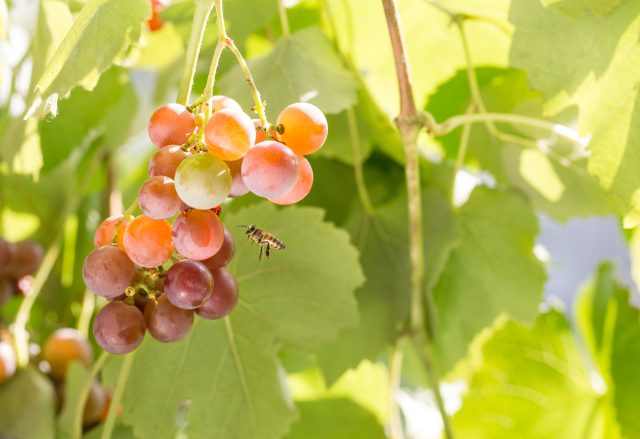This website uses cookies so that we can provide you with the best user experience possible. Cookie information is stored in your browser and performs functions such as recognising you when you return to our website and helping our team to understand which sections of the website you find most interesting and useful.
Californian producer supports bees through organic wine sales
California’s Scheid Family Wines has announced that it will be supporting non-profit conservation organisation Bee Regenerative this autumn.

The partnership will mark the Monterey County-based producer’s second year of partnership with the organisation.
Throughout September and October, for every bottle of Scheid Family Wines’ Grandeur range sold, it will donate US$1, up to a total of US$3,500, to Bee Regenerative.
Grandeur, which launched last year, contains three wines: a rosé (made with Petite Sirah), red blend (of Petite Sirah and Cabernet Sauvignon), and a single varietal Cabernet Sauvignon. The grapes for all of the wines are organically cultivated.
“The bees were at this beautiful, remote site long before we were,” commented Heidi Scheid, executive vice president of Scheid Family Wines. “A healthy bee population is vital to agriculture, so we support and applaud Bee Regenerative’s efforts.”
According to Bee Regenerative, bees “have an important and undervalued role outside of cash crop pollination services”: “They are also essential in building soil health, though ensuring reproduction of plants that fix nitrogen naturally and support healthy mycorrhiza communities, essential in grapevine production. Bees are an indicator species of a healthy vineyard and an in-tact environment. Ecologically speaking, they are an indication of the loop coming back together.”
The charity also noted that by pollinating plants (including the vines) that attract other insects, such as ladybirds and soldier beetles, the bees “draw in beneficial predators” of pests.
However, research from the University of California reveals that bee populations in the state are under threat, with climate change, habitat destruction and the use of pesticides in agriculture meaning that four of California’s 28 native bumble bee species are on the cusp of being classified as endangered. One of these species, Crotch’s Bumble Bee, only now occupies around a fifth of its original range, and another, Franklin’s Bumble Bee, may already be extinct.
Bee Regenerative’s aim is to collaborate with businesses, including wineries, to ensure that they are utilising bee-friendly management systems. The White Flower vineyard, Scheid Family Wines’ first to be certified as organic and where the fruit for Grandeur is sourced from, reportedly has a healthy bee colony living in the trunk of a blue oak on the property.
Related news
Cava DO on target to become 100% organic by 2025

